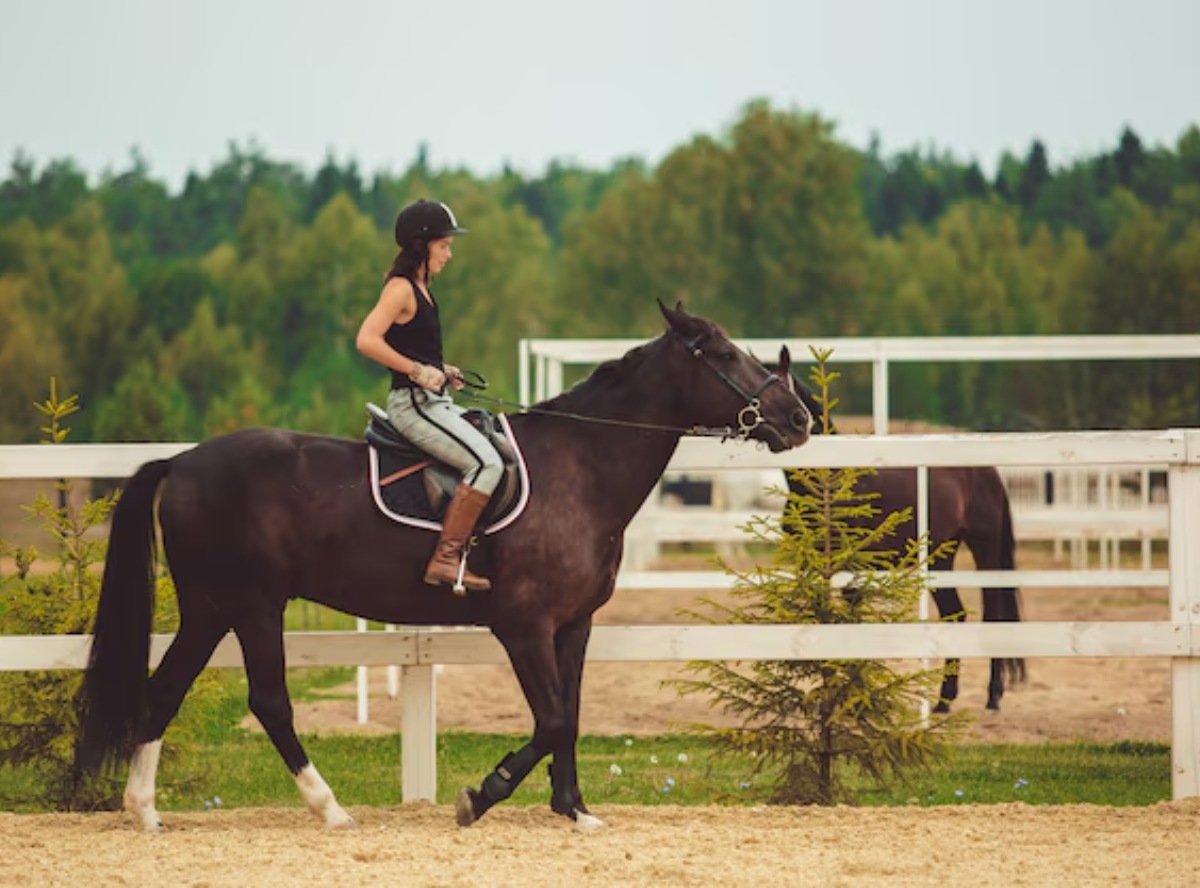For many equestrians, the prospect of horse training in bad weather can seem daunting. However, with the right strategies and mindset, it is possible to continue training effectively, even when the weather is less than ideal. In this article, we will explore various techniques and considerations that can help you maintain your horse’s training regimen throughout the year.

Understanding the Challenges of Bad Weather
Bad weather presents unique challenges for horse training. Rain, snow, wind, and extreme temperatures can all impact both the horse and rider’s comfort and safety. Understanding these challenges is the first step in developing effective training strategies that prioritize the well-being of your horse.
Impact on Horse Behavior
Horses, like humans, can be affected by the weather. During rainy or windy days, horses may become more skittish or distracted. It’s important to recognize these changes in behavior and adjust your training approach accordingly. For more insights on managing horse behavior in challenging conditions, visit Megan Weiss Blog.
Safety Considerations
Safety should always be a top priority during horse training, especially in adverse weather conditions. Ensure that both you and your horse are equipped with appropriate gear to protect against the elements. This includes waterproof clothing and proper hoof protection to prevent slips and falls.
Adapting Training Routines
Adapting your training routines is crucial when dealing with bad weather. Flexibility in your training schedule and methods will allow you to continue making progress without compromising on safety or comfort.
Indoor Training Options
When outdoor conditions are unfavorable, consider utilizing indoor facilities for training. Riding arenas and barns can provide a controlled environment where you can focus on specific skills without the distractions of the weather. For more ideas on indoor training, visit Horse Tack Training.
Shorter, More Frequent Sessions
Adjusting the length and frequency of training sessions can be beneficial during bad weather. Shorter, more frequent sessions can help maintain your horse’s fitness and focus without overwhelming them. For tips on timing your training sessions, check out Training Sessions Timing.
Maintaining Horse Health and Comfort
Ensuring your horse’s health and comfort is crucial during training in bad weather. Proper nutrition, grooming, and rest are essential components of a successful training regimen.
Nutrition and Hydration
Bad weather can affect a horse’s appetite and hydration levels. Ensure that your horse has access to clean water and a balanced diet that supports their energy needs. Consult with a veterinarian or equine nutritionist for personalized advice.
Grooming and Care
Regular grooming is important to keep your horse’s coat healthy and free from moisture-related issues such as rain rot. Use waterproof blankets and rugs to keep your horse dry and comfortable during wet or cold weather.
Building a Stronger Bond
Training in challenging weather conditions can also be an opportunity to strengthen the bond between you and your horse. Through patience and understanding, you can build trust and improve communication.
Trust-Building Exercises
Engage in trust-building exercises that encourage cooperation and mutual respect. These exercises can be particularly valuable in helping your horse feel secure and confident, even in unfamiliar or uncomfortable conditions. For more on trust-building, see Gain a Horses Trust.
Positive Reinforcement
Using positive reinforcement techniques can enhance your horse’s learning experience during training. Rewarding good behavior with treats or praise can motivate your horse to perform well, regardless of the weather.
Conclusion
While horse training in bad weather presents its challenges, it also offers opportunities for growth and development. By understanding the impacts of weather on your horse, adapting your training routines, maintaining health and comfort, and building a stronger bond, you can achieve successful training outcomes. Remember, patience and flexibility are key to overcoming the hurdles posed by bad weather.

FAQs
Can I train my horse in the rain?
Yes, you can train your horse in the rain, but it’s important to take necessary precautions. Use waterproof gear and ensure the training surface is safe to prevent slips.
What should I do if my horse becomes skittish in bad weather?
Remain calm and patient. Consider reducing the intensity of training and engaging in trust-building exercises to help your horse feel more secure.
How can I protect my horse from the cold during training?
Use appropriate blankets or rugs, and ensure your horse is adequately warmed up before starting training. Keep sessions short to prevent overheating or chilling.
This article contains affiliate links. We may earn a commission at no extra cost to you.








